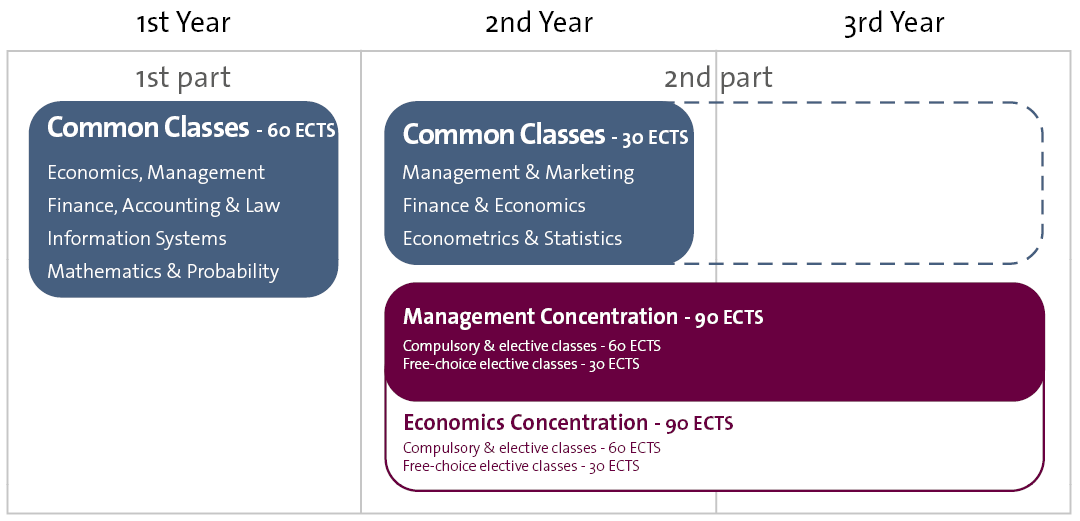
The Bachelor of science program in Economics and Management gives our students a solid grounding in the two complementary fields. There is a strong focus on acquiring the quantitative skills needed for developing analytical skills, critical thinking, and the ability to understand and responsibly solve tomorrow's complex problems. Our graduates go on to do Master’s degrees at the GSEM and other prestigious universities internationally. This degree gives students the means to differentiate themselves in the job market.
A bilingual program
Each first-year class is presented in both French and English. In the second and third years, classes are taught in either one language or the other. This allows all our students to develop the professional language skills essential for the job market – especially in an international environment like Geneva. The University of Geneva’s Maison des Langues offers English classes for interested students and French support classes for non-native speakers.
Regardless of the class's teaching language, students can reply to exam questions in either English or French.
Quality, innovative teaching
The teaching comprises a combination of lectures and practical work, offering classes and projects in which exercise and case study theory are put into practice. The use of stimulating innovations in teaching distinguishes our Bachelor's: we use simulation games, give classes focusing on sustainable development, offer students the opportunity to take part in an institutional project, give classes on responsible project management, as well as web-learning and seminars on developing interpersonal skills, and invite CEOs and managers of Geneva-based companies to give talks.
The week before the start of term, we offer a preparatory Math class to ensure that our students start the Bachelor’s program in the best possible conditions.
career opportunities
CURRICULUM
The first part of the Bachelor’s program comprises core courses in Economics, Management, Finance and Accounting, Statistics, Law, and Information Science (60 credits).
The second part comprises 30 credits for common compulsory classes, the choice between focusing on Economics or on Management, and a free choice of classes in Economics/Econometrics, Management, Statistics and Mathematics, Finance, Information Systems, or classes at other faculties. It is also possible to spend one or two semesters on an exchange at another university during the second part of your Bachelor’s course.





